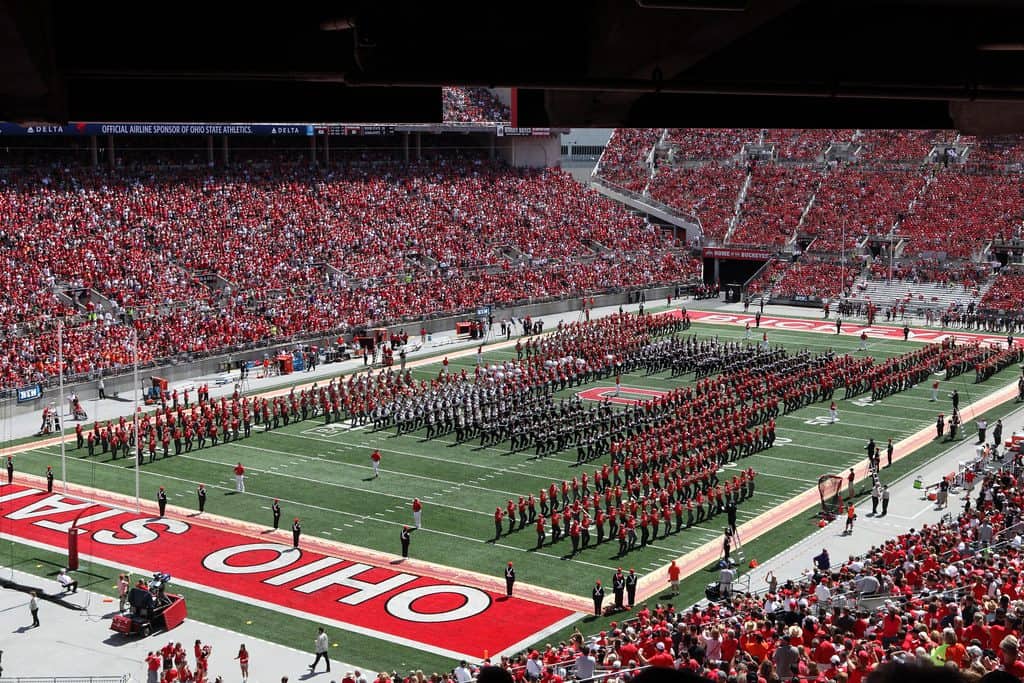We recently interviewed Jacqueline Mueller, Ph.D. in Sport Leadership, Lecturer at Loughborough University, London for our article Leadership Learnings from an Award-Winning Lecturer and International Leadership Consultant. We couldn’t fit all the valuable insights and learnings she shared, so we’ve placed them here in an extended Q&A.
How do your students like learning about themselves? From the diverse groups of students and clients you work with, have there been any surprising responses to self-knowledge?
This is always a fascinating part of the work I am doing. Both students and clients really value to learn more about themselves and their behavioral tendencies. It is interesting to see that many of them feel like the DISC is a very accurate reflection of their natural behavioral tendencies. People I work with, are especially fascinated when they discover the link between different self-awareness tools such as their own (national) cultural identity profile (Hofstede), their DISC, their leadership preferences, and their preferred organizational culture (OCAI).

It is an aim of the courses I am running to help participants utilize that self-knowledge to enhance their communication abilities and to foster effective team work. Only rarely students/clients feel like they have not learned something new about themselves or that the DISC assessment “got it wrong”. Surprisingly, it is often that those individuals held back in the discussion and may not have made the most of the opportunity to learn more about themselves.
You work across such diverse and profile organizations – is this challenging, what do you most enjoy about this?
Yes, I do wear a lot of different “hats”. I love to say that I am an academic by day and a leadership consultant by night. The key challenge I am facing in working with different organizations and individuals is to pitch the content at the right level. I often have to remind myself to go a little more theory light when I am working with experts from the industry (e.g., for the Future Leaders in Football Camp (run by the German FA), or the European Handball Manager program). Practitioners are very eager to learn about themselves and leadership, but are less interested in the heavy theoretical underpinnings. On those occasions, I tend to emphasize how that new information can help them become a better version of themselves on and off the pitch and thereby ultimately increasing the performance of their teams. When working with students, it is important to keep in mind that they may not always have some high level practical experience to draw on. Therefore when engaging in multiple self-reflection activities and learning about themselves it is important to offer them some points of reference and provide examples. This will allow them to bring theory to life and see how this new information can have an impact on them and their future careers. I love dipping in and out of the different worlds as I feel it keeps me balanced and on my toes. Holding a Ph.D. in Sport Leadership from one of the globally most renowned universities for sport management, Loughborough University, allowed me to become a subject matter expert, but I want to bridge the gap between theory and practice. I fear that by only being a full time academic and not engaging with industry would limit the value of the work I am doing. I feel that especially in research fields such as leadership and team dynamics the usability of that information in practice is essential. By fostering an ongoing dialogue with both academia and practice I can try to get the best out of both worlds and make an impact.
Why do you choose to invest your time and energy developing leadership capability in others?
I feel that a wide group of people do not think of themselves as leaders or as having leadership abilities. As a result they neither engage in leadership development programmes nor do they apply for positions requiring leadership skills. I think that this is a real shame and that everyone, regardless of their age, culture or current position has some leadership abilities and can make an impact. This can be self-leadership or leading teams. In addition, especially in sports we are historically drawn to a leader-centric approach to leadership. What I mean by that is, that for decades we have (wrongly) assumed that leadership is something that solely resides within one (male) person in charge and that neither the context nor the followers have a significant impact. I love to challenge this taken for granted assumption and advocate for a new way of looking at leadership as something that is co-constructed by the leader(s), the followers, and the context. If we allow this new understanding of leadership to emerge we will be able to have a more holistic and contemporary understanding of leadership as something that can be shared across multiple individuals within any team.
The ‘Future Leaders in Football Program’ includes representatives from 15 different countries.
This is so exciting and challenging at the same time, can you tell me a little bit about accommodating the cultural differences and capturing the common leadership challenges this group faces.
I was very honored when the German FA approached me to inquire if I’d be interested to co-design and deliver their new Future Leaders in Football Camp that they facilitate in cooperation with the Deutsche Gesellschaft für International Zusammenarbeit (GIZ), SCORT, and street football world. I feel that establishing leadership camps that especially target the leaders of tomorrow to equip them with the skills they need, a network to draw upon, and a safe space to express their concerns is a very valuable initiative. With growing social challenges around the globe, emphasis is put on young people to proactively lead the way towards sustainable and positive social change, on and off the field. As a universal language and a passion shared all over the world, football can play a part in developing the skills and competences to become socially responsible leaders, to build bridges and to connect people and cultures. The young people in particular have taken on the task of addressing global social challenges with the aim of generating sustainable and positive social change, on and off the pitch. It was amazing to learn about unique cultural challenges those 15 individuals were facing and to establish what commonalities unites them. The top reoccurring leadership challenges included: managing cultural diversity, facing gender issues, ensuring the sustainability of events and programmes, and facilitating effective communication between “young and old”.
Now I am excited for the second round of the FLF Camps which will be a “Female Edition” especially targeting women and girls in the middle east. With the World Cup 2022 taking place in the Middle East, the decision was made to put an emphasis on the support and growth of female leaders within the football industry. This new camp will take place in March in Amman, Jordan and I am very excited to be part of it again.
What are the key reasons a student will choose your program and/or class at Loughborough University?
Loughborough University has been recognized as the top university in the world for sport related subjects by QS World Rankings for the fifth time running. Naturally we attract a high level of students onto our postgraduate programmes offered on the London campus. The Institute for Sport Business offers four distinctive sport management programs ranging from Sport Analytics and Technologies, over Sport Marketing, to Sport Business and Leadership. Students in the MSc Sport Business and Leadership Programme are driven by a passion to learn about leading and managing individuals, teams, and organizations in the sport business industry. Being the Module leader for the Leadership Diversity and Change module that runs during the first semester, gives me the opportunity to introduce students to recent developments in leadership research with a focus on diversity and change. Students key reasons for choosing their degree and this course range across becoming familiar with a range of leadership challenges executives face in the sport industry, to become more self-aware, and to prepare themselves for future leadership roles. Alumni of the degree went on to work for Chelsea FC, the IOC, Octagon, and BTSport amongst other top employers.
What are the most valuable take-aways for your students and clients when they participate in your programs or take your class?
They will define their own way of leading and understanding leadership whilst learning about key challenges leaders in the sport industry are currently facing (i.e., innovation, sustainability, gender, culture, age). Key takeaways include an awareness of their own national cultural identity and how that varies from that of their home country as well as an increased self-awareness of their natural and adapted behavioral tendencies. They will leave the class more self-aware and equipped with some tools to guide their communication going forward.
What is the best feedback you receive from your students or clients about their experience in your classes or programs?
It is the most rewarding thing, if students or clients come back a year later to report how they have used what they have learned in class. To know that the learnings had an impact on them, their lives and future careers is the best feedback one can hope for. I also just love to hear from them coming back for more information or advice on some topic that we did not get the time to cover extensively in class.
What has been the top 1-3 things that have helped you succeed in your own career?
- Finding something you’re passionate about. I think the most important thing for me has been to find something that I am passionate about (turning others into the best leader they can be). I have previously worked as a recruitment consultant and as a sales manager in a gym, both neither really ticked my boxes and as a result made me really unhappy in the job. For me, getting back into academia and researching a topic that I truly care about was the most important decision I made, even though it meant getting back into education and walking away from a well paid full time job.
- Resilience. Once you have found something that you are passionate about and know where you want to go in your life, don’t give up. Doing a Ph.D. requires a lot of efforts and does not get done over night. An ability to stick with it and to see the end of the tunnel has really helped me to push through tough times in and outside of academia.
- Networking. A lot of opportunities that have come my way especially outside of academia are the results of people in my network directly approaching me. The Sport industry at the end of the day is a small bubble and if you like it or not it always helps that people know who you are. I am lucky though as I love the networking part of any event and love to stay in touch with a diverse group of people that I met along the way.
How/why did you get into the role you are in now?
I will be joining Loughborough University as a lecturer on the tenure track up from January. Having previously completed both my Masters and Ph.D. in the same institute has helped me to get a great understanding of the Team and the requirements of the job. Getting the job was extremely competitive and it helped that I always did more than what was required of a “normal Ph.D. student” or adjunct faculty. It was my career goal to end up on a tenure track position upon completion of the Ph.D. so I researched what boxes I had to tick to increase my chances. Landing that job at my alma mata with such an incredible reputation and only teaching postgraduate classes is a bonus.
What are you aiming for in the future?
I’d love to set up a research study with Athlete Assessment to investigate the link between individuals behavioral profiles (DISC) and their leadership preferences within sports. It would be fascinating to see if ‘D’s’ ‘I’s’ ‘S’s’ or ‘C’s’ tend to see leadership different and what leadership characteristics (i.e., Sensitivity, Intelligence, Masculinity, Dedication) the different behavior types prefer.
Other than that I am hoping to apply for an UEFA research grant to explore the link between individuals cultural identities and their leadership preferences within a professional football context.
How has working with Athlete Assessments contributed to your class and/or work with clients? (what has been most valuable)
Whenever I am invited to deliver a leadership class I recommend to integrate the DISC profile into the course as I truly believe it to offer very valuable insights for participants. Giving participants the opportunity to also engage in the 360 part of the DISC is a truly valuable add on that a lot of the people I work with appreciate. Working with Athlete Assessments has been absolutely great and the team does everything to make the integration of the DISC as easy as possible. Having Bo speak about the DISC and his own journey and experience in the field is an extra bonus.
Any other comments about the work we’ve done with you or about us?
I do really love working with you guys and appreciate the great service you are providing to your customers.
Recommended Articles
Having the capability to lead plays a critical role in this effectiveness, so how do we actually develop leadership across diverse populations, ensuring to include those who may be reticent or hesitant to take on a leadership role? Jacqueline Mueller, a leadership expert renowned for bridging the gap between theory and practice acknowledges there’s no effective ‘cookie-cutter’ approach for teaching leadership, but simply put she says, “I try to invite participants to reflect on themselves and to find a way of leading that works for them.”
What do a six-time Olympian, former NFL player, national level gymnastics coach, and an aspiring Athletic Director have in common? If you guessed they might all be sporting A-listers, you’re very close, try just some of the Ohio State University Masters of Sport Coaching current class list.
We spoke to Dr. Jacob Tingle, Assistant Professor of the Practice of Business Administration at Trinity University, about creating teaching traction through a podcast series for his course content.





